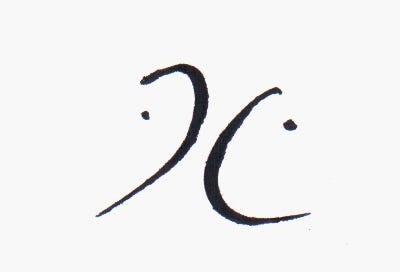[Blank page]1
One of the reasons these pages are blank is that young-Toby doesn’t have his big diary with him. That’s still back with his other stuff in Ampthill. The entries here, including the blanks, are copied out from his tiny pocket diary or daybook.
It’s a marker of something that for 1989 and 1990, Toby bought large format diaries. He think’s it’s important he has a full narrow-lined A4 page to write on. He’s expecting a lot to happen, and it does.
Valentine’s Day is coming. He’s thinking of that. It’s not making him feel good.
In his red notebook, bought in the US, young-Toby writes —
The sky is suddenly blank of birds.
and —
In medieval times
How many a child must have asked its mother
Where do the birds go in wintertime.
And he writes in prose, under the sign of Proust —
No-one ever finds their life satisfactory, or knows what their characteristics are. None think the caricature done by a friend exaggerates the right points, even though it does. None could anticipate the point in a conversation among their friends in their absence at which they would be referred to.
It is only after the life has been lived that it becomes totally satisfactory. I was this word satisfactory and I realize that it is an unfortunate choice, but I am not attempting to use it in the normal sense of self-satisfaction, of implied smugness as ‘pious’ implies ‘impiety’ and ‘righteousness’ implies ‘moral decay’ but to use it in the sense of proportional correctness, perceived rightness, harmony long desired and finally achieved. This is an aesthetic satisfaction, the satisfaction of form, of the life compared against some ideal perhaps.
There are exceptions to this rule. Notably this, the life lived becomes more satisfactory the more distant in time and therefore the more remembered it is. Childhood takes on its great meaning as most of us cannot remember infancy. But don’t beds, where we spend so much time, express a deep nostalgia for the womb? Simplistic, I recognise it. And doesn’t the pillow, the pipe (insufficient weaning), express the desire to lie on our mother’s stomach, our head at her breasts, our feet at her belly-button? Doesn’t our desire for bigness around us really express our desire for inner smallness? I’m sure this is all in Freud or Jung somewhere, though I have read neither.
And on the page beside this lie, I think, the beginnings — somehow — of his later novel, deadkidsongs. A little scarily —
Children are not innocent. Well not, at least, innocent in the way that they have traditionally been portrayed as being. I say ‘traditionally’ but our present view of childhood as, say, our present view of Christmas or of Sunday, are highly influenced by the Victorian Era. No doubt Chaucer would had a more realistic, less sentimental view of children than either the Victorians had or I, my view terribly polluted by the Victorians, can have.
But I will say this, children are often vicious, sometimes divisive and rarely altruistic. However children are also at times highly moral, surprisingly formal and even sententious. It is difficult to generalize about children, and perhaps one shouldn’t, as whilst they can be moral they can also be barbarous, whilst rarely altruistic they are also capable of acts of pure kindness beyond almost any adult.
Yet none of these characteristics is innocent.
Let us conclude then that children, whilst being similar to adults, are different. That the society they form is a parody of adult society, conscious or unconscious. And that this is why fascism is so attractive to them. That the personal relationships they form are parodies of adult personal relationships. And that his is why they are so often oversentimental. And finally that children must on no account be allowed either to have authority over other children (I am with Golding all the way on this one) or be forced into revealing their hundred personality forming secrets. The former will result in bullying, which is unnecessary; the latter will result in lying, which is.



